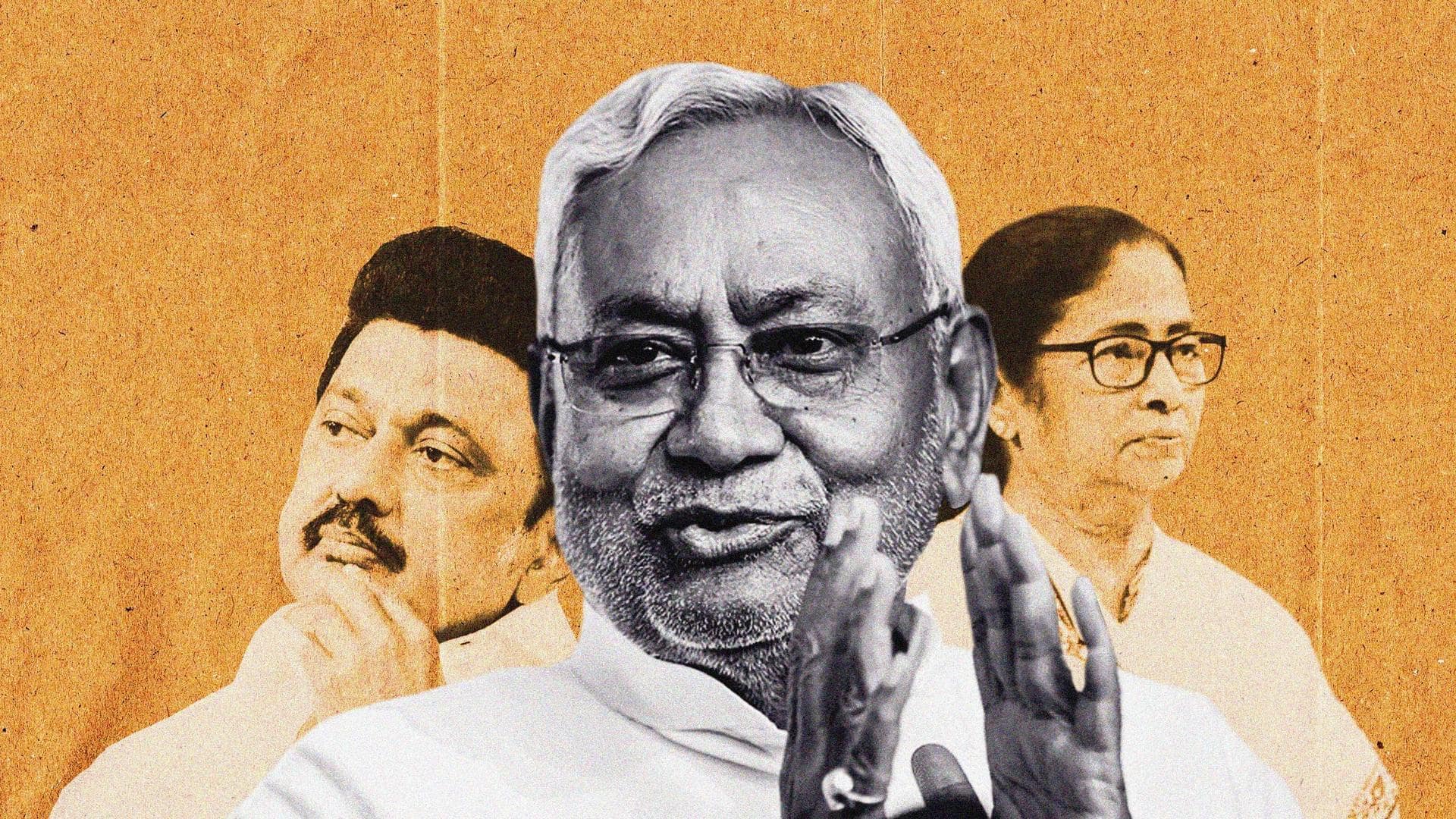
2024 polls: Joint opposition to fight BJP on 500 seats
What's the story
Following Janata Dal (United) leader and Bihar Chief Minister Nitish Kumar's proposed "one-on-one" strategy for the 2024 Lok Sabha polls, a joint opposition front is on the cards to defeat the ruling Bharatiya Janata Party (BJP).
Reportedly, the new front will be constituted by June, which will then field candidates jointly on 500 seats against the contenders from the BJP-led National Democratic Alliance (NDA).
Context
Why does this story matter?
As the Lok Sabha elections are nearing, all opposition parties have sprung to action hoping for a leadership change at the Centre.
On the other hand, the BJP-led NDA is trying to retain power for the third consecutive term.
Opposition parties have been trying to forge a joint front but received little success. Notably, the NDA won 353 out of 545 seats in 2019.
Alliance
Joint opposition front's convener to be PM face
Kumar reportedly suggested a structure for the proposed joint opposition front in his recent meeting with the leaders of the Congress and some regional parties, too.
Apart from the office bearers, the joint front will have a chairperson and a convener. The convener is likely to be projected as the coalition's prime ministerial candidate.
Notably, Kumar said that he doesn't have prime ministerial ambitions.
Details
Stalin called all-opposition party meeting in June
Kumar has already reportedly proposed the structure of the united opposition front to Congress chief Mallikarjun Kharge, Samajwadi Party (SP) chief Akhilesh Yadav, and West Bengal CM Mamata Banerjee.
He is expected to discuss the same at the all-opposition party meeting in June called by Tamil Nadu CM MK Stalin to mark the centenary birth anniversary of his father and former CM M Karunanidhi.
Information
Similar strategy used in 1977 to defeat Congress
Interestingly, a similar strategy was used in 1977, according to a top leader aware of the discussions, when the Janata Party defeated the Congress, and Morarji Desai became the prime minister by unseating Indira Gandhi.
The formation of the Congress-led United Progressive Alliance (UPA) in 2004 also followed this game plan, the leader added.
Equity
Parties need to negotiate seat share
Since regional parties in a state have rivalries, it is speculated that all parties will have to sacrifice some seats under this proposed strategy.
In Bihar, the Rashtriya Janata Dal (RJD) and the JD(U) will likely take the majority of seats and give adequate shares to Congress and Left parties.
A similar move is expected from the ruling Trinamool Congress (TMC) in West Bengal.